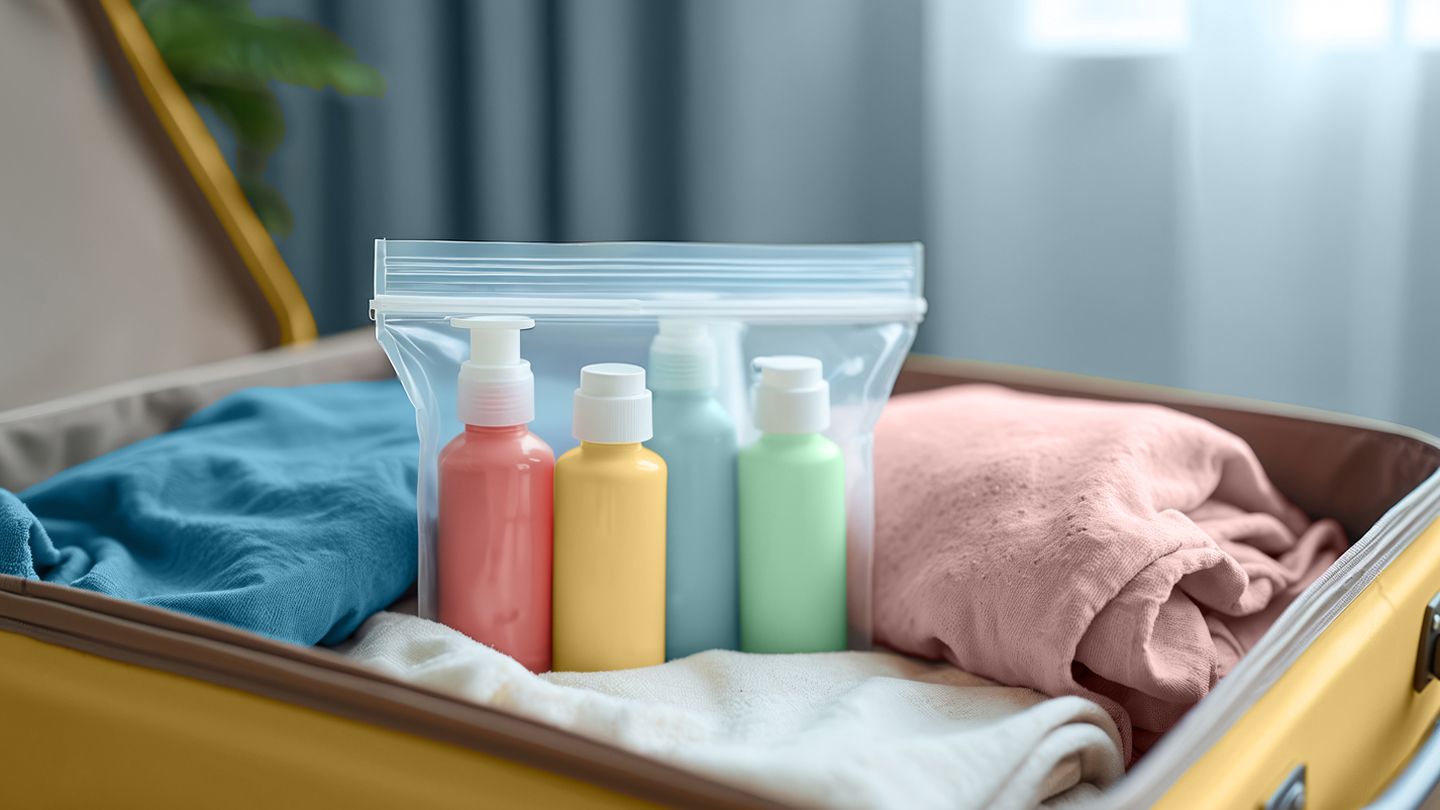Traveling can be daunting when you have psoriasis — flight delays, changing weather, and space constraints can make it more difficult to predict and respond to your symptoms.
Summer travel brings its own set of challenges, with seasonal changes in temperature and humidity, as well as events and activities that may require special considerations. Beach trips, weddings, and amusement parks won’t necessarily involve the same kinds of preparations.
Here are some strategies to make summer travel with psoriasis as seamless as possible.
1. Research the Weather at Your Destination
Both temperature and humidity can play a role in worsening psoriasis symptoms, or a flare, at your travel destination.
“In general, heat and humidity are probably better than coldness and dryness in terms of what triggers psoriasis flares,” says Jinwoo Lee, MD, PhD, a dermatologist at Stanford Health Care in Redwood City, California.
A quick online search can reveal typical temperatures at your destination, but humidity can make a big difference in how you prepare for your trip.
In a more humid environment, “It’s easier to stay moisturized, and it can be easier to avoid flares,” says Cameron Nichols, MD, a dermatologist at University of Colorado Health in Aurora, Colorado. “We see almost a direct correlation between dry, cold air and psoriasis formation.”
Some people, Dr. Nichols says, even travel with humidifiers. “They make ones that are very small, so that can help minimize the chance of developing a flare” in a dry environment, he says.
2. Plan Ahead for Activities
What you’re doing on your trip can affect the likelihood of developing a psoriasis flare, and your likelihood of needing to use a moisturizer or extra topical medications.
For example, spending time outdoors in sunlight can be beneficial for psoriasis.
“The UV light has an anti-inflammatory effect,” says Nichols. Still, you should wear sunscreen and spend time in the shade when possible to protect your skin from damage. “You still get some benefit, even with sun protection,” for psoriasis, he says.
Some activities, like swimming, may have either a beneficial or a harmful effect on psoriasis depending on the person and other factors. Chlorinated water in swimming pools can dry out your skin, while lake or ocean water may be soothing for some people. In the same vein, amusement parks may be fun and relaxing for some people, while the crowds and lines stress other people out, potentially increasing the risk of a flare.
Keep your psoriasis needs in mind when planning your trip. “Usually patients will have a pretty good sense of what tends to trigger their psoriasis flares, and they’ll be able to adjust their activities accordingly,” says Dr. Lee.
3. Consider Travel Conditions
Whether you’re taking a road trip or flying, it’s important to take your travel conditions into account. In either case, you may be washing your hands in unfamiliar places, so consider bringing your own hand soap if you find soap in public restrooms to be irritating or drying.
With air travel, dry air can be a real problem for people with psoriasis. “It gets really dry on planes, so I recommend bringing a moisturizer they like to use” in a travel-sized container, says Lee. “Not everyone’s psoriasis gets itchy, but for people who do, flights can be tough.”
If you’re traveling to a different country, it’s a good idea to bring a doctor’s note explaining any medications you’re taking along, says Nichols. Since different countries have different rules, this can help make sure nothing is confiscated, and applies whether you’re packing your medicine in a carry-on or a checked bag.
4. Pack Enough Moisturizer and Medicine
How much moisturizer or topical medications you should pack depends, of course, on the length of your trip. “If their trip isn’t longer than the dosing frequency for whatever medication they’re using, then they don’t have to worry about their prescriptions,” says Lee.
But sometimes it’s better to be overprepared and bring more of your moisturizer or medication than you think you’ll need — especially in case you have a flare on your trip.
Treating a psoriasis flare “oftentimes involves increasing the potency of any topical medications, or starting to use a topical medication,” says Lee. “So having those ‘rescue’ topicals on hand is probably the most important thing.”
If you’re bringing topical medications in a carry-on bag on a flight, “I don’t recommend squeezing it into another bottle” due to size restrictions, says Nichols. “In a prescribed container and with a doctor’s note is probably the best way if the products are over three ounces.”
Lee says that a doctor’s note usually isn’t necessary to take topical medications in a carry-on bag, even in larger sizes. “As long as it has the original label with the prescription on it, I’ve never had a patient that ran into issues” with security, he says. But you can also ask your dermatologist for a prescription for a smaller size, if this is more convenient for you.
When it comes to packing moisturizer, you might want to check a bag if you’re taking a trip that’s longer than a couple of days. “I think it’s hard to have enough moisturizer in a carry-on bag,” says Nichols. If you don’t want to check a bag, make sure you can buy your moisturizer at your destination.
5. Keep Biologics Cold
If you’re using a biologic medication that you’ll need to take during your trip, traveling can be a bit more complicated — and you might want to consider planning your trip to avoid needing to take it while you’re away. In that case, you might only need to take “rescue” topical medications with you in case you have a flare.
If you need to travel with a biologic drug, you’ll have to take it in a cooler (or a travel refrigerator, if you’re driving). For flying, that means you’ll need to check in early with security to explain your situation and show a doctor’s note. “It does require about 20 extra minutes at the airport,” says Nichols.
It’s important not to pack biologic drugs in a checked bag due to temperature changes in the luggage area of airplanes, says Lee. “Especially for injectable medications that are in solution form, you don’t want them to get frozen,” he says.
6. Take Comfortable Clothing
If your trip involves a beach or campground, you’ll probably be inclined to pack comfortable clothes. But even if you’re going to a formal event like a wedding, it’s a good idea to bring extra clothes to wear when you’re not at the event itself.
“Lightweight fabrics that are designed to pack small also tend to be really good at wicking away moisture and being breathable,” says Lee, making them a good choice for people with psoriasis.
Cotton and silk are also good fabric choices, says Nichols, while synthetic fibers can be hit-or-miss, so pack clothes that you’re familiar with. “I wouldn’t try new shirts for the first time when you’re traveling,” he says.
7. Anticipate and Manage Stress
Traveling can be stressful, which may be a factor in developing a psoriasis flare. “We know that stress can worsen psoriasis. It’s pro-inflammatory in general,” says Nichols.
A well-planned itinerary, with plenty of breaks, can help ensure you get where you need to go without stressing out. And if certain activities help you destress — such as walking, yoga, or reading — make sure to incorporate them into your trip when possible.
Ultimately, being prepared for your trip may be the best antidote to stress. “I think the biggest thing is just being prepared, having your medications, and if you need a note from your doctor, to get one in advance,” says Nichols. And don’t forget that if any psoriasis-related issues arise on your trip, you can contact your dermatologist for advice.
The Takeaway
- Both temperature and humidity changes can trigger psoriasis flares, so it’s important to research the weather at your travel destination ahead of time.
- Pack an adequate supply of moisturizers and medications to manage your symptoms, which could include bringing travel-sized items in your carry-on.
- For those using biologic medications, ensure you plan for keeping them cold during your journey, and consider checking in early at the airport with a doctor’s note.
- Stress can exacerbate psoriasis symptoms, so building a flexible itinerary and including stress-reduction activities can make your travel experience more enjoyable.
Read the full article here




